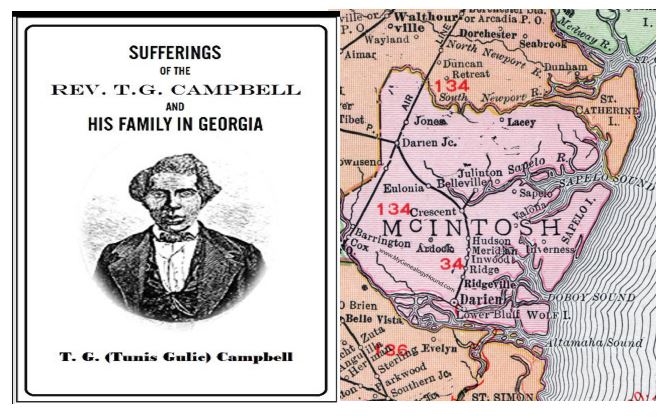Tunis G. Campbell, Sr. Georgia Black Reconstruction Leader By Jonathan Grant @Brambleman In 1861, a 49-year-old black abolitionist named Tunis G. Campbell, Sr., walked into a recruiter’s office in New York City and attempted to enlist in the Union Army. Like all African-Americans in the war’s early stages, he was rejected as unfit on the basis of his race. Campbell, a well-educated restaurateur, baker, and published author, didn’t give up. He wrote a letter to President Lincoln outlining a self-improvement plan for freed slaves after the war. As a result, he was sent to Union-occupied Hilton Head, S.C., to work with General Rufus Saxton. In 1865, Campbell—a tall, imposing man who dressed formally and wore spectacles—was appointed military governor of five Georgia…
Tag: Civil War Reconstruction
Take that, Scarlett O’Hara: The tale of Tunis Campbell is the true story of Georgia Reconstruction
Tunis G. Campbell, Sr. Georgia Black Reconstruction Leader By Jonathan Grant @Brambleman In 1861, a 49-year-old black abolitionist named Tunis G. Campbell, Sr., walked into a recruiter’s office in New York City and attempted to enlist in the Union Army. Like all African-Americans in the war’s early stages, he was rejected as unfit on the basis of his race. Campbell, a well-educated restaurateur, baker, and published author, didn’t give up. He wrote a letter to President Lincoln outlining a self-improvement plan for freed slaves after the war. As a result, he was sent to Union-occupied Hilton Head, S.C., to work with General Rufus Saxton. In 1865, Campbell—a tall, imposing man who dressed formally and wore spectacles—was appointed military governor of five Georgia…
Take that, Scarlett O’Hara: The tale of Tunis Campbell is the real story of Georgia Reconstruction
Tunis G. Campbell, Sr. Georgia Black Reconstruction Leader By Jonathan Grant @Brambleman In 1861, a 49-year-old black abolitionist named Tunis G. Campbell, Sr., walked into a recruiter’s office in New York City and attempted to enlist in the Union Army. Like all African-Americans in the war’s early stages, he was rejected as unfit on the basis of his race. Campbell, a well-educated restaurateur, baker, and published author, didn’t give up. He wrote a letter to President Lincoln outlining a self-improvement plan for freed slaves after the war. As a result, he was sent to Union-occupied Hilton Head, S.C., to work with General Rufus Saxton. In 1865, Campbell—a tall, imposing man who dressed formally and wore spectacles—was appointed military governor of five Georgia…


